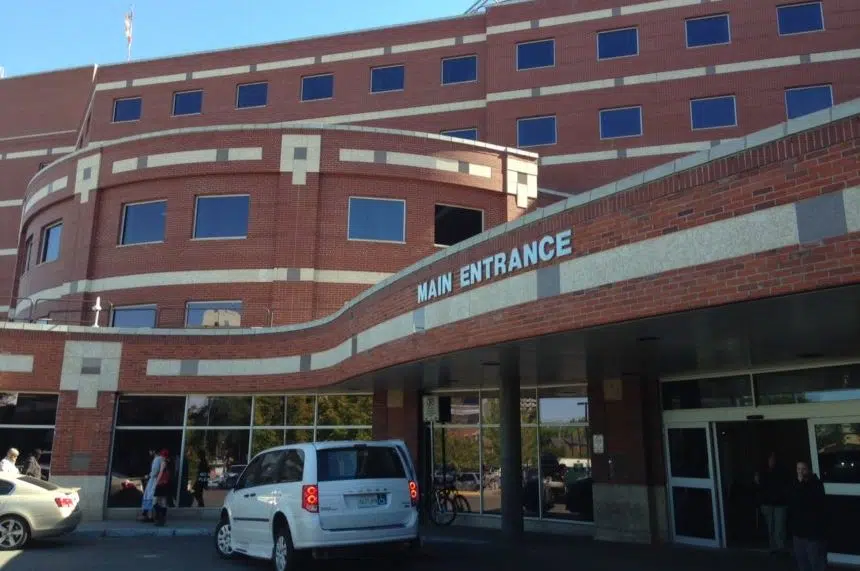COVID-19 is putting a massive strain on Regina hospitals.
The Queen City’s intensive care units are now putting two patients to a room and redirecting new COVID patients to hospitals elsewhere in the province.
As of Friday, there are 96 people in Regina hospitals fighting COVID-19, including 30 that are in the ICU. Elsewhere in the province, there are 14 people in intensive care fighting COVID.
The Saskatchewan Health Authority (SHA) has raised the number of intensive care beds in the Queen City by 18 to ensure it’s able to meet the demand. Before the pandemic, there were 27 ICU beds.
Doubling up patients while using privacy dividers to separate them is just one way the SHA is fighting the surging hospitalizations.
Lori Garchinski, the executive director for the health authority’s programs for tertiary care, described the current situation in Regina hospitals as “unprecedented.”
“We are concerned about what has happened over Eastertime and we continue to make plans with our regional and tertiary ICU partners across the province to expand levels of bed capacity and provide manpower strategies to make sure that we’ve got the ability to manage those patients,” Garchinski said.
“Placing two patients per room has always been part of our surge plan. We did a lot of that work and we made sure that our staff were ready and that the infrastructure was available for it.”
Garchinski says the effects of Easter are starting to show and the result is really impacting the local health-care system.
“Everything that we’re seeing now likely happened somewhere around a week to two weeks ago, so we are concerned about what has happened over Easter,” she said.
“There has always been a concern that if there were residents that did not follow the public health orders and had expanded some of their bubbles that there could be additional risk for transmission.
“Our health teams are tired. We have had to increase our capacity and they have spent many, many, many hours putting in overtime. We have spent time upskilling other staff too and by having to do that, we have had to slow down some services in Regina that normally would be provided.”
The field hospital at Evraz Place won’t be utilized, as it’s not meant for patients requiring intensive care, according to Dr. Jeffery Betcher, the SHA’s critical care lead for the Regina area.
“The infrastructure is very different for critical care patients than ward patients,” Betcher said. “The field hospitals wouldn’t have that sort of infrastructure in place.”
When Garchinski was asked how hospitals elsewhere in the province would fare if they started facing the same rapid hospitalization pressures, she hoped it wouldn’t get to that point.
“We’ve never been there before, so it’s a hard question to answer,” she said. “I would hope we don’t have to answer that question, but I think the teams are working very hard together to build plans in place to make sure that we can maximize all the resources we can.”
Both Garchinksi and Betcher stressed the exhaustion that health-care workers are feeling and that the result could be noticed long after the pandemic is over.
“There’s going to be a lot of people that are very tired and I’m not sure that the public would be confident in feeling they’ve got fresh health-care workers looking after them after this is over,” Betcher said. “These workers have stretched themselves to the max.
“It really comes down to the public doing their part.”











